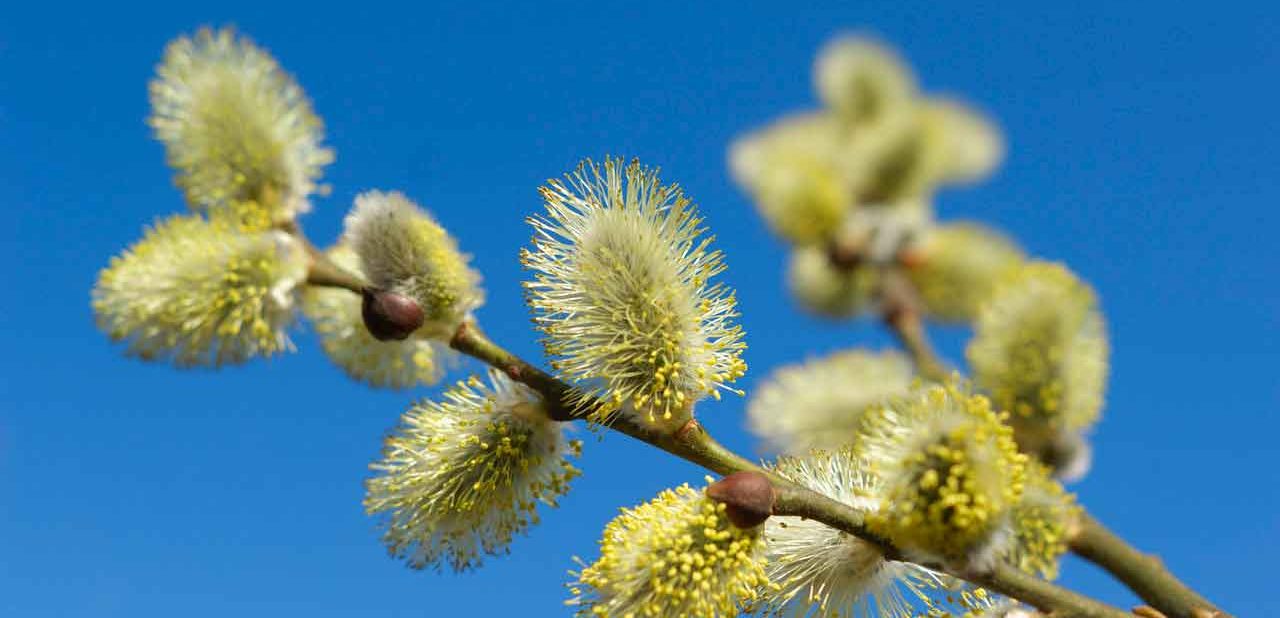How Winter Weather Affects Spring Allergies

Whether it’s frigid or mild could affect how you feel when spring arrives.
If you’re one of the estimated 50 million Americans who live with seasonal allergies, you might understandably wonder how severe the upcoming spring allergy season will be, so you can prepare. One way to find clues about this allergy season is to look at the winter that preceded it.
“A number of factors, such as weather patterns, predict how intense the spring allergy season will be,” said allergist Michael Foggs, MD, president of the American College of Allergy, Asthma and Immunology (ACAAI). A particularly mild winter or an especially cold and snowy one will dictate a different allergy season, but neither will give you a total reprieve from spring allergies.
A mild winter equals a long allergy season
During a milder-than-usual winter, trees pollinate sooner than usual. Early exposure to pollen primes your immune system to react, meaning you’ll not only have to contend with a longer-than-usual pollen season, but your symptoms will also be more severe. A 2011 study found that ragweed season lasts two to four weeks longer today than it did in years past.
A cold winter brings an overlap of symptoms
While mild winters cause a lengthier allergy season, don’t expect a long, cold winter to bring much of a reprieve from your symptoms. When spring arrives late, plants that would normally pollinate in sequence all release their pollen grains at the same time.
Also, the normal gap between tree and grass pollen seasons (which normally starts in summer) shrinks. Thanks to this overlap, anyone who is allergic to trees and grass will have to contend with both allergens simultaneously.
Dealing with the change of seasons
For people with multiple allergy triggers, the change of season itself can be anything but pleasant. “Allergy and asthma patients already have a chronic sensitivity to things like pollen, mold, and other airborne allergens, but they can also be more susceptible to rapid changes in temperature, moisture, and air quality,” said Clifford W. Bassett, MD, Medical Director of Allergy and Asthma Care of NY and an Ambassador for the Asthma and Allergy Foundation of America. As winter transitions to spring, the mix of cold and warm days means both winter and spring allergens are out in full force.
Be ready for the season change
“No matter what time of the year it is, and no matter what Mother Nature sends our way, people with allergies need to be prepared and proactive to avoid allergy misery,” Bassett said.
Visit your allergist long before spring allergy season arrives. Start allergy shots early, if you need them, to help desensitize you to your triggers. Also stock up on over-the-counter and prescription drugs such as antihistamines and nasal steroids to combat allergy symptoms when they arrive.
Throughout the spring allergy season, keep track of the pollen count in your area. Know which types of pollen are most prevalent before you go outside. On days when your trigger abounds, try to stay indoors with the air conditioner on.
Updated:
March 30, 2020
Reviewed By:
Janet O’Dell, RN